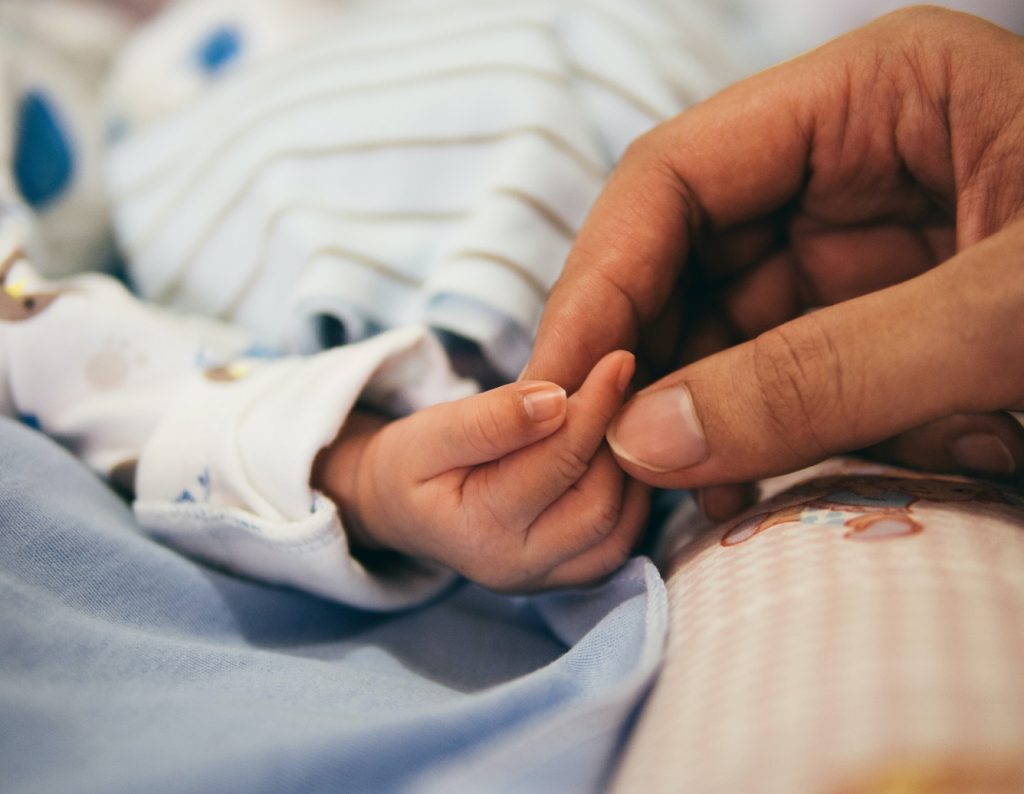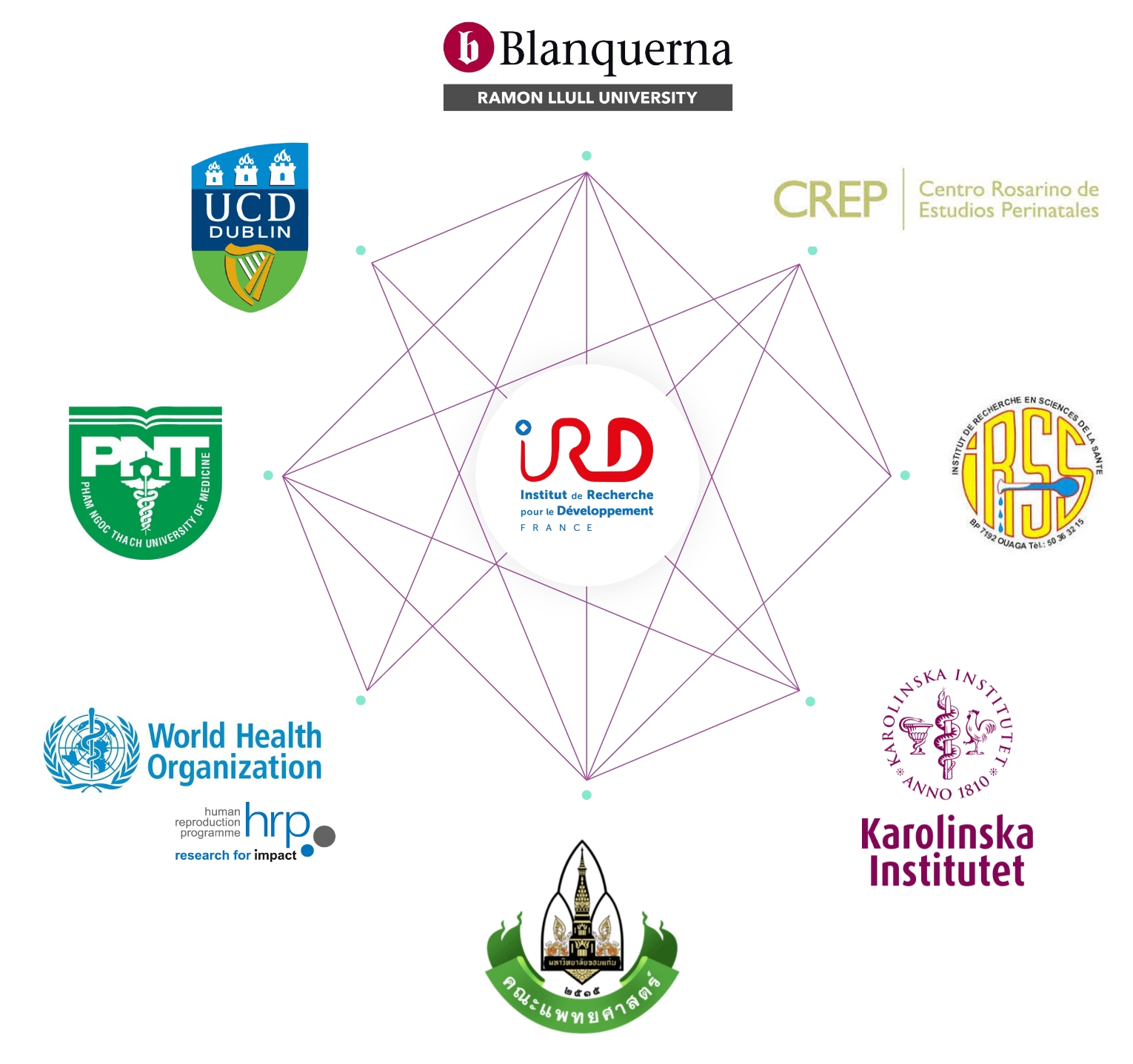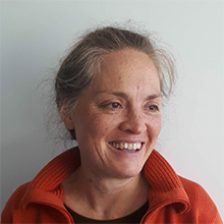C-section or vaginal delivery :
making an informed choice !
C-section or vaginal delivery :
making an informed choice !
An international research project on the appropriate use of cesarean section : how to make the right decision?
An international research project on the appropriate use to cesarean section: how to make the right decision?

What is Quali-Dec ?
A scientific project of collective and shared research :
• which aims to reduce the practice of non-medically justified caesarean sections
• of international in scope, it is composed of a consortium of 9 countries and an intervention area covering 4 target countries: Argentina, Burkina Faso, Thailand, Vietnam.
• financed by the European Commission (EC) and the World Health Organization (WHO)
The team
This project is carried out by an international and multidisciplinary team composed of health practitioners, researchers in social sciences and medical sciences. These specialists spread around the world bring to this project their knowledge and local studies in order to enrich and refine it over time. This team is led by Alexandre Dumont, scientific coordinator of the project.

The deployment
Quali-Dec is being implemented in 4 countries: Argentina, Burkina Faso, Thailand and Vietnam. It is conducted by a consortium of institutions located in 9 countries : Argentina, Burkina Faso, Spain, France, Ireland, Sweden, Switzerland, Thailand, Vietnam.
Global partners
Quali-Dec partners are involved in promoting the project worldwide. Each institution distributes the project’s decision-support tools, and health practitioners and researchers guide patients in their choice between natural childbirth and planned cesarean section. In their respective countries and locally, their role is essential to raise awareness of the advantages and disadvantages of each mode of delivery. The Quali-Dec partners are therefore essential relays to answer questions and guarantee the health of their patients and their babies.
FAQuali-Dec
Below are the answers to the most frequently asked questions…
A “Contact Us” link located at the bottom of the page will also allow you to write to us if you have not found the answer to your question:
Each method has its advantages and disadvantages. Researchers from the Quali-Dec project have analyzed all published studies from around the world that compared maternal and newborn health outcomes for each method of delivery.
There is often a lack of information about the risks associated with each method. This is why QUALI-DEC provides you with the results of these studies, including a guide and an application to download to help you make the right decision. Nevertheless, the latest research clearly shows that there are more complications for the mother and her baby after a caesarean section, even if it is scheduled.
Feel free to discuss with your doctor the possibilities of a vaginal delivery for your situation:
– Take the time to weigh up the pros and cons of a planned caesarean section or a natural birth with your doctor.
– If you still have questions about the benefits of a vaginal delivery, you can seek a second opinion from another practitioner.
If a scheduled caesarean section is decided upon, it is important to schedule it after 39 weeks of pregnancy to reduce the risk of respiratory distress in the baby after birth. Keep in mind that labour may start spontaneously before the scheduled caesarean date. In this case, your doctor will reassess the possibility of a vaginal delivery.
Are you pregnant and wondering how you’re going to give birth? Every birth is unique. The choice of delivery route depends on a number of factors such as your baby’s weight, size and position, as well as your medical history. This application is designed to provide you with information and help you reveal your preferences regarding your mode of delivery…Don’t hesitate to download the Quali-Dec application!
Quali-Dec is a project born from the joint work of the IRD (Institute for Research and Development) and its partners. Since 2020, the IRD has been conducting this project in the form of a consortium in 9 countries with a scientific research field that covers 4 countries: Argentina, Burkina Faso, Thailand, and Vietnam.
It is based on the often alarming observation that there is too much recourse to caesarean section as a method of delivery.
Quali-Dec provides pregnant women, their relatives, and health professionals with non-clinical tools and researchers with evaluation studies to improve the decision-making for a cesarean section.
Despite strong awareness among women and health professionals, the practice of cesarean sections continues to increase worldwide (+35% on average over the last 25 years).
This increasement is often related to a choice of comfort and not to medical reasons.
Sometimes, for medical reasons, a planned cesarean section before the start of labor is necessary. However, it is usually possible to attempt a natural birth, which has many advantages over a caesarean section.
There are many misconceptions about the safety and presumed benefits of cesarean section, but also that a woman should have a vaginal delivery no matter what.
Blog

👉 Event: Quali-Dec teams presented the project results at the XLII SOGIBA International Congress in Argentina
Alexandre Dumont (scientific coordinator of the Quali-Dec project) travelled to join the Quali-Dec team from CREP (Centre Rosarino De Estudios Perinatales) in Argentina to present the project results

👉 PUBLICATION Scoping review: ‘Decision support tools for childbirth: do they improve the quality of decisions, decision-making processes and health outcomes for pregnant women?’
Read the SCIENTIFIC ARTICLE published on 25/05/25 in EJOG (European Journal of Obstetrics & Gynaecology and Reproductive Biology): https://doi.org/10.1016/j.ejogrb.2025.114085 Lead author: Truc Phuong NGUYEN (PhD student

👉 PUBLICATION – THE CONVERSATION, March 11th, 2025: “Limiting the sharp increase in inappropriate caesarean sections worldwide”
The QUALI-DEC team is pleased to announce the publication in “THE CONVERSATION”* of an article by Camille Etcheverry (midwife and doctor of public health/epidemiology within















